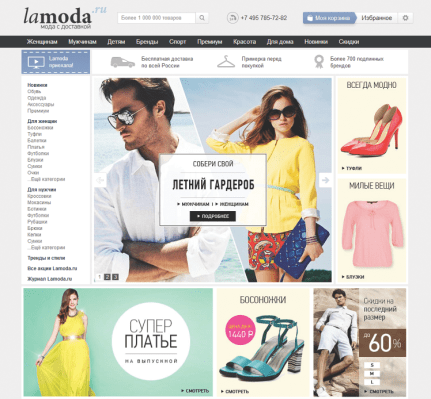Rocket Internet — the Berlin-based startup incubator that went public in October 2014 — is today adding more muscle to the Global Fashion Group, a cluster of five of its emerging market fashion sites that consolidated into one bigger operation last September. The GFG has raised €32 million ($35 million) at a €2.8 billion ($3 billion) post-money valuation, and it now has its own CEO — Romain Voog, who jumped from his former role as the head of Amazon France to lead the group.
The developments at GFG speak to how Rocket Internet and GFG’s other shareholders — the three largest investors are Kinnevik (25.1%), Rocket (23.5%) and Access Industries (7.4%) — are looking for better economies of scale in its operations.
GFG brings together Dafiti (Latin America), Jabong (India), Lamoda (Russia and CIS), Namshi (Middle East) and Zalora (South East Asia and Australia) — fashion portals that effectively do the same thing as each other. Each site offers a mix of apparel and accessories from a mix of brands that are popular everywhere, alongside items that are particular to each local market; and increasingly a selection of private-label (own-brand) items.
While GFG is currently valued at €2.8 billion ($3 billion) and is collectively approaching 5 million active subscribers, Nils Chrestin, GFG’s new CFO (who comes over from Lamoda) said that none of the individual operations are yet profitable.
The fresh funding from Tengelmann Ventures and Verlinvest announced today will be used to change that. The GFG plans to invest in growing higher-margin services like selling private label items; as well as in making deals for stock and investing in operations that could apply across the whole group. While there were already some aspects of this already in place when the startups were separate entities, this is fundamentally a change from how things were run before, Chrestin said.
“We operate in quite challenging and not necessarily super similar markets. The consumer markets can be similar but the realities are not,” he said of the reason Rocket Internet originally developed the businesses as separate entities. “Call centers, the payment methods, the languages, and the local production capabilities for private labels” are all variables. “Initially it was all quite a headache. Last-mile delivery infrastructure wasn’t on the agenda originally, for example.”
But now that the basics have been figured out, it’s time to try to make the operations more efficient. “Now we’re in more stable waters, a couple of years in,” he said.
Part of the reason for the lack of profitability is because it often takes a long time for e-commerce startups to tip into black, and that will be the case perhaps even more for the GFG businesses, which operate in emerging markets.
The idea here is that the consolidation could help speed this up. “We have been investing in building a large and loyal customer base, and a large part of our expenses go into marketing. We are growing fast and want to make sure we can build the business,” he said in an interview. “But I think absolutely that operating as GFG these operations can become profitable sooner. This will have a positive impact.”
Romain Voog, the new CEO, is coming to GFG after seven years with Amazon, where he was leading the company’s operations in France (not a small task considering some of the controversy Amazon has faced there). Before that he was an exec with the large French retailer Carrefour. When he suddenly departed Amazon in March, there were rumors that it was to join Rocket Internet — which have now proven to be correct.
The GFG collectively covers 23 countries with 2.5 billion people. Together, the footprint is estimated to have a fashion market value of €330 million. The $32 million, in one regard, is a drop in the ocean for GFG: collectively the individual regional operations in the GFG have raised hundreds of millions in funding over the years.
